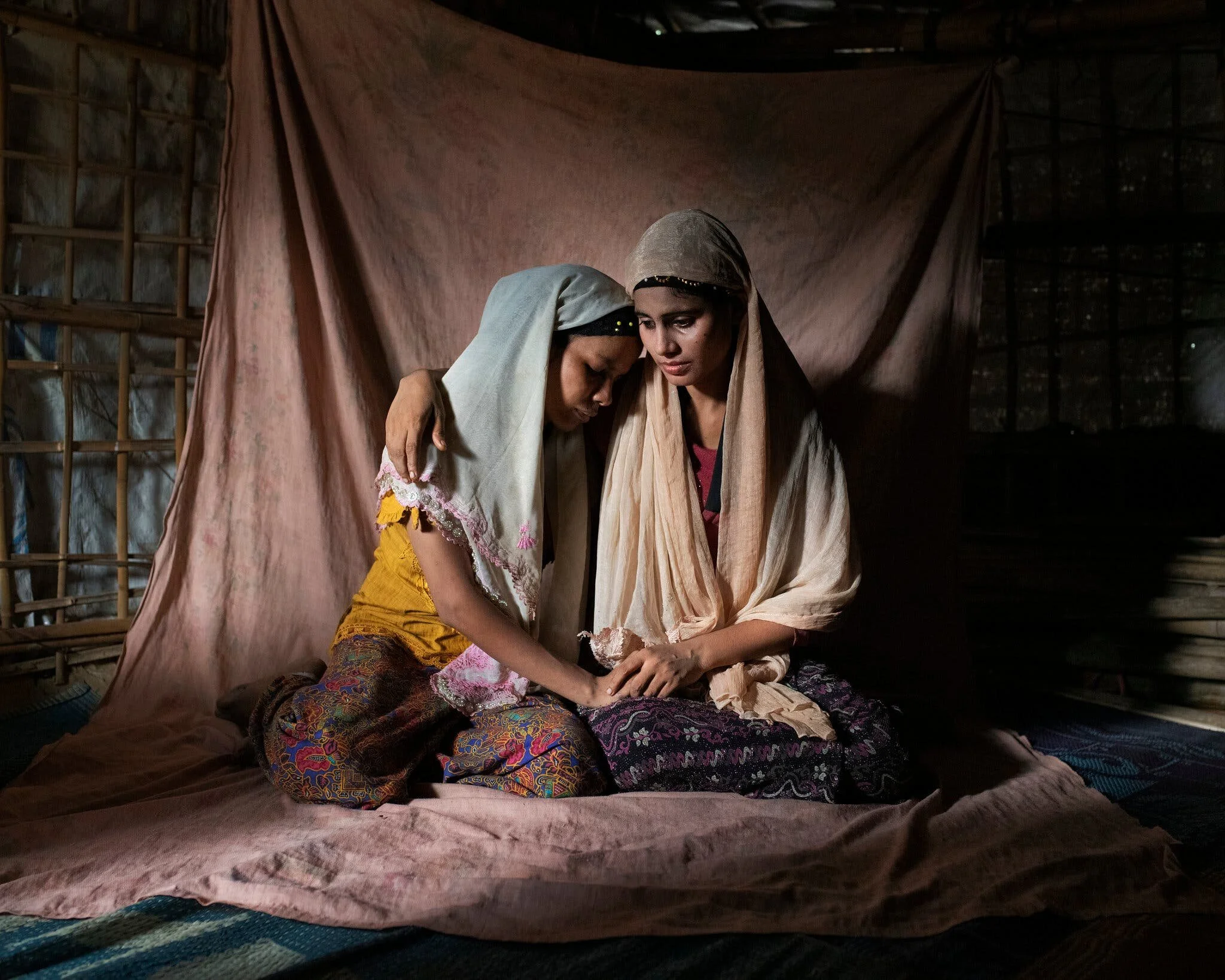Tormentors Change, but Not the Torment: Myanmar’s Military Accused of Renewed Abuse Against Rohingya
Picture: Rohingya refugees Shamshida, 25, left, and Manwara, 19, in their tent in Teknaf, Bangladesh. Photographs by Adam Ferguson
In an article by The New York Times, Hannah Beech and Adam Ferguson report on allegations of renewed abuses by Myanmar’s military against the Rohingya Muslim minority. Despite international condemnation and legal actions, including a genocide case at the International Court of Justice, the military junta continues to target Rohingya communities. Recent accounts from survivors and human rights groups describe killings, arson, and forced displacements in Rakhine State, where the Rohingya have faced decades of persecution.
The military denies these allegations, claiming its operations are aimed at combating insurgent groups. However, evidence suggests a systematic campaign of violence, echoing the 2017 crackdown that drove over 700,000 Rohingya to flee to Bangladesh. The article highlights the ongoing humanitarian crisis and the lack of accountability for the military’s actions, exacerbated by the international community’s limited ability to intervene effectively.
When the bombs started falling, they were almost beautiful — like the purple blossoms of the banana tree, Manwara and her sister Shamshida would recall later.
Their family was on the run, escaping the mortar fire that drove them from their home in Hari Fara, one of the last refuges for Myanmar’s Rohingya Muslim minority. They left their village in August, only to be hit by a rain of bombs released from drones. The strikes killed their parents. Their other three sisters, missing, are presumed dead.
They were among thousands of ethnic Rohingya families fleeing their villages this summer amid a new wave of targeted violence, a horrible echo of the ethnic cleansing by Myanmar’s military that killed thousands and exiled hundreds of thousands in 2017.
This violence was not at the hands of the military, though. Instead, it was from a pro-democracy rebel group that was raised to fight the army. The rebels’ political aim may be different, but the persecution they are inflicting on the Rohingya — airstrikes, mass arson, sexual violence — is torn from the government’s old playbook.
No matter who is in control in Myanmar, it seems, it is the Rohingya who suffer.
“Everyone hates us, but I don’t know why,” said Ms. Manwara, 19. “It’s our curse.”
After years of civil war, the military junta that overthrew a democratic, civilian government in 2021 has lost control of about two-thirds of the country’s territory. Yet the victories by the armed resistance — a patchwork of militias fighting in the name of restoring democracy and of securing better rights for the minorities they represent — offer no moral certainty.

